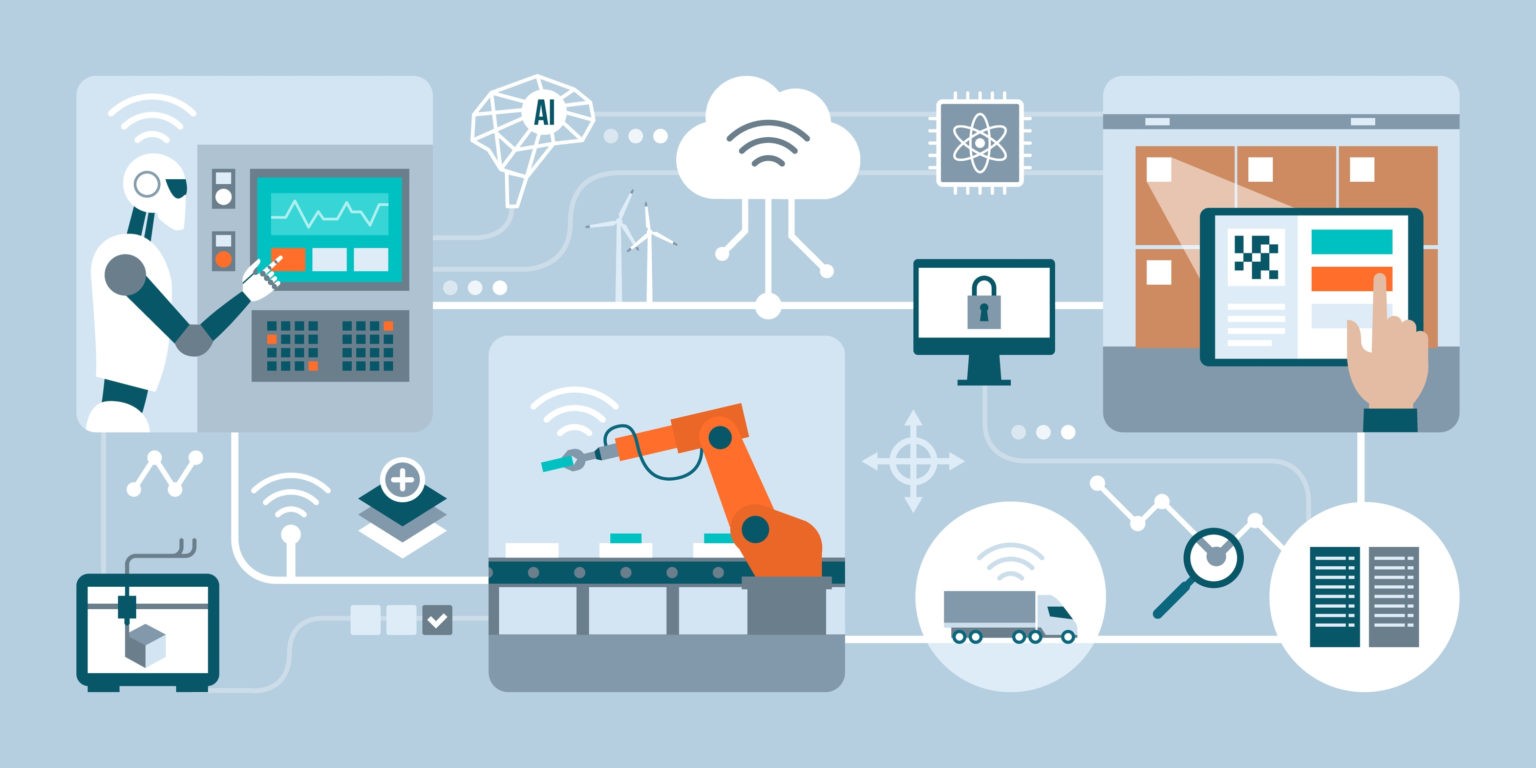Quantum Computing and its Role in the Future of Manufacturing

Quantum computing sounds like science fiction, but it’s a real-life, emerging technology. The manufacturing sector is set to benefit from super-fast, super-smart quantum computers. In fact, manufacturing use-cases already wait in the wings for the computing power they need work. But along with the provocative prospect of rapid innovation comes the threat of a “quantum apocalypse.” What do manufacturers need to know about this sci-fi technology made real?
What is quantum computing?
Ever run across a math problem a supercomputer couldn’t solve? Quantum computers apply quantum mechanics to solve complex problems that stump supercomputers. It’s not as rare as it sounds. Supercomputers struggle with problems containing multiple variables and multiple possible solutions. This is where quantum computing comes in. Quantum computers use algorithms that apply quantum wave interference to calculate quantum bits (qubits) into values we can understand. They’re especially useful for solving multivariable/multisolution problems, and they work fast. One quantum algorithm can potentially perform a complicated search in 0.00000165343 of classical computing time. That’s one week for classical computing versus one second for a quantum computer.
Understanding quantum computing requires knowledge of physics, programming, and other high-level fields of focus. For the everyday end-user, quantum computing is the ability to solve complex problems faster. But it’s no exaggeration to say that quantum computing could usher in the next IT revolution.

Manufacturing’s foray into quantum computing
The manufacturing industry stands to benefit from quantum computing in several ways. It can help optimize supply chains, analyze software performance, improve cybersecurity, and more. Other use-cases for quantum computing include:
- Expediting prototyping and design development through scenario planning
- Resolving supply chain issues by processing broad variables in real-time
- Improving value stream productivity with exponential increases in data processing speeds
- Fortifying cybersecurity to mitigate the risk of a data breach
- Bringing transparency to materials handling through robust data processing
Quantum computing has the potential to provide manufacturers with safer, more streamlined computational processes and improve everything from design and development to production and quality control (QC) — variables that will shape the industry for years to come.

What is the “quantum apocalypse?”
If quantum computing sounds like the perfect answer to every possible manufacturing problem, think bigger. Manufacturing isn’t the only sector poised to benefit. Consider the implications for education, medical research, space exploration, climate change, resource distribution, and crisis management. Now think about how much change the internet and mobile computing have driven in the last thirty years. Together, these two thought exercises give you some idea of the scope of a quantum computing revolution. So, what’s the downside?
Computers are continuously increasing in efficiency, putting more power and greater speed within our reach. But every advance that benefits business gives cybercriminals a leg up as well. Hackers armed with quantum computing power could effortlessly break through any current encryption software. Some of the cybersecurity initiatives we rely on today will be entirely obsolete in the quantum computing age. This scenario is known as the “quantum apocalypse,” and it spells trouble for any industry that depends on digital technology — including manufacturing.
In the event of quantum apocalypse, manufacturing’s most secure systems will face unprecedented exposure. Hackers with access to a manufacturer’s onsite network or cloud-based servers can steal intellectual property (IP), disrupt communications, and compromise operations. Recent ransomware attacks on industry targets are a grim preview of approaching doom.
Addressing potential disaster begins with acceptance. As implausible as it sounds, quantum apocalypse is a real possibility. Add cybersecurity safeguards now. Options include multi-factor authentication (MFA) systems, roving encryption standards, and quantum-powered security measures that quickly adapt to block cyberattacks.
How can manufacturers prepare for a quantum future?
Prepare for a quantum future by learning about quantum computing and its manufacturing implications. Quantum computing has enormous potential for optimizing operations and business processes. Consider all the ways quantum technology could affect your company. Plan for the benefits and prepare for the cybersecurity risks.
